New wave | OHSAA recruiting younger generation to tackle officiating shortage
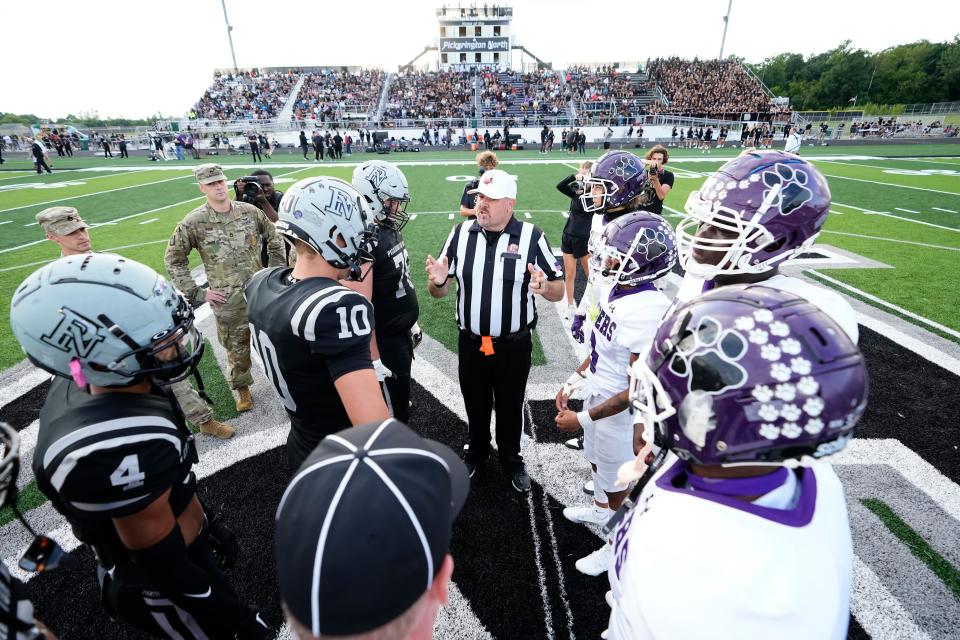
With the number of officials dwindling and the lack of new faces joining the ranks, the Ohio High School Athletic Association needed to find ways to get new − and younger – people involved.
Recruiting, training and retaining new officials has become a mission that has no end in sight. And with factors such as problematic fan behavior driving some older officials away, the OHSAA knows it must find ways to make sure the younger ones want to stick around.
Between 2008 and 2010, officiating in Ohio was at its peak, with the OHSAA seeing numbers "as high as they've ever been," including 16,629 in 2010, according to director of officiating Beau Rugg. That peak coincided with the Great Recession. Numbers fluctuated in the ensuing years before the OHSAA took a hit during the COVID-19 pandemic, which included the cancellation of spring sports in 2020.
When sports resumed that fall, the OHSAA had 13,778 officials, down from 14,651 in 2019-20. But the number dropped to 11,877 in 2021-22, which was "the low point in the last 20 years at least," Rugg said. There are currently 14,157 officials, he said, and some work multiple sports.
During the pandemic, enough events were canceled by schools to mitigate the officiating shortage and not have additional cancellations, Rugg said. However, once schools no longer canceled events because of COVID, some events were canceled or rescheduled because officials weren't available.
OHSAA leaders knew they needed to act.
"I’m an opportunity guy," Rugg said. "What kind of opportunities did (COVID) provide for us? And it provided us some great opportunities to rethink how we do things. We were great when we could stay steady on how we did things."
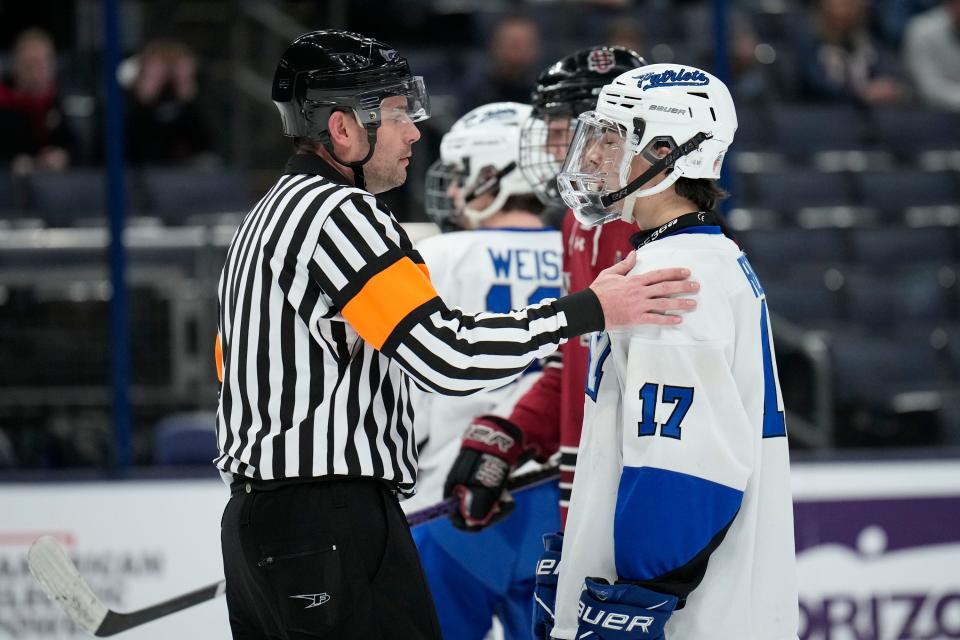
The biggest change Rugg and his office made was moving the required officiating classes online, allowing anyone interested to take the classes at any time, no matter the season, rather than having to wait until the one time a year a class for a specific sport was held in-person.
The most recent change, a program that allows high school students to take the officiating classes as part of their curriculum, has been integrated into about 50 OHSAA member schools.
"That just gets a lot more young people involved," Rugg said. "I don't know how much fruit we're going to bear right away, but as they go to college and they look at college and (ask), 'How can I earn some extra money?’ ... We want to get them exposed while they're participating and keep them involved in the sport."
Trailblazer: How Patty Ryan cemented her name in Columbus officiating history
With the average age of an Ohio high school basketball official being around 50, the OHSAA believes if it could add officials from a younger demographic it would help across all levels of sports. In Ohio, someone as young as 14 can take the test to become a certified official for seventh- and eighth-grade sports.
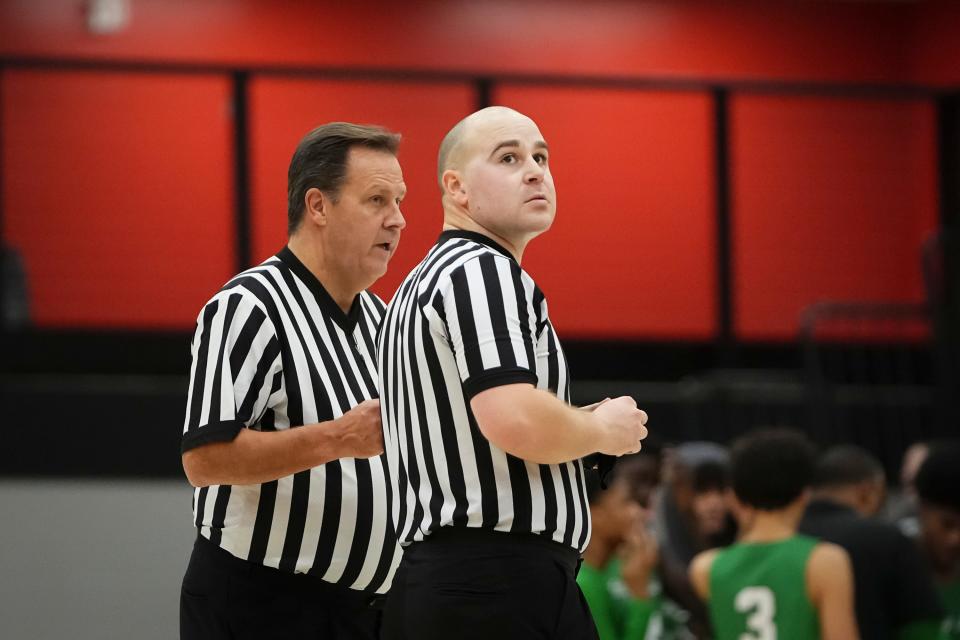
A.C. Sallee, a 34-year-old Columbus-based basketball referee, started officiating at 18 to stay active in the sport past his playing days. Sallee hopes to share his experiences with a new generation of officials.
"Mentorship always helps out," he said. "So anytime you can get someone that you can look up to and that individual is open enough to bring you along (and show) what it looks like to be in the back during the pregame, in the locker room and what conversations that officials are having is a good thing. Being exposed to those conversations outside of what you see on the floor ... those type of exposures help."
Spread the word
Rob Brammer knows there is interest in officiating among high school students and young adults because he has seen it firsthand.
As the coordinator of boys basketball and football officials for the CCL and OCC, Brammer is a point of contact for new officials. When a Dublin Coffman boys soccer player passed the officiating test and needed to know where to go next, Brammer reached out.
"I said, ‘Well, how did you get involved in it?' " Brammer said. "He started talking to other officials, and they said, ‘We need officials in all sports.’ And so, he started looking into basketball, he went online, took the test."
Even though classes are online, the officiating community still uses word-of-mouth communication to introduce opportunities, especially when talking to student-athletes who are finishing their high school careers.
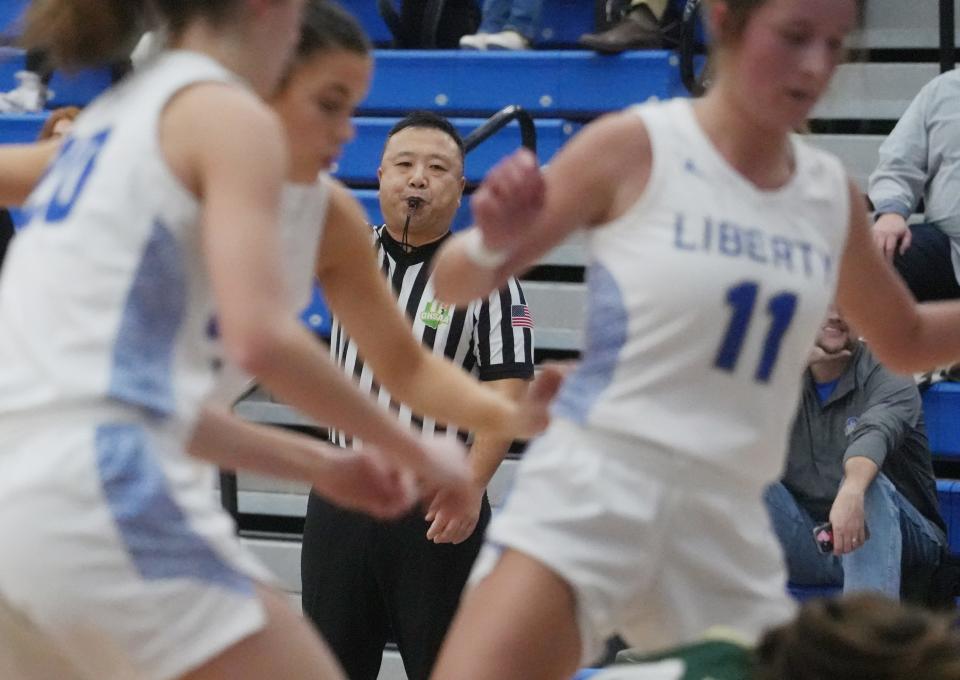
Mike Burwell, a former official in charge of assigning officials for softball, field hockey and boys and girls basketball across several central Ohio leagues and tournaments, does as much promoting as he can for officiating but feels there is only so much he can do himself.
"The main thing that we've been trying to do here recently is to get the schools to just target a kid that's in their school," Burwell said. "I have about 90 schools. If each school would just come up with one kid, we could really put a bite in it, but … (we have) got to find the kid that actually wants to do it."
'It's about the kids': Central Ohio high school football officiating crew honored by NFL
Athletes who want to stay involved with the sports they have played are the ones most likely to try officiating, Burwell said. But along with that passion, he thinks money also can be a factor.
In the 2022-23 school year, the pay for games increased in certain leagues, including the two Brammer covers. For a Class 3 official working a basketball game, the only type of certification high schoolers can earn without a degree, Brammer said they can make around $50. Class 1 officials, who have to be 18 or older but can work varsity basketball, get paid $90 for those types of games.
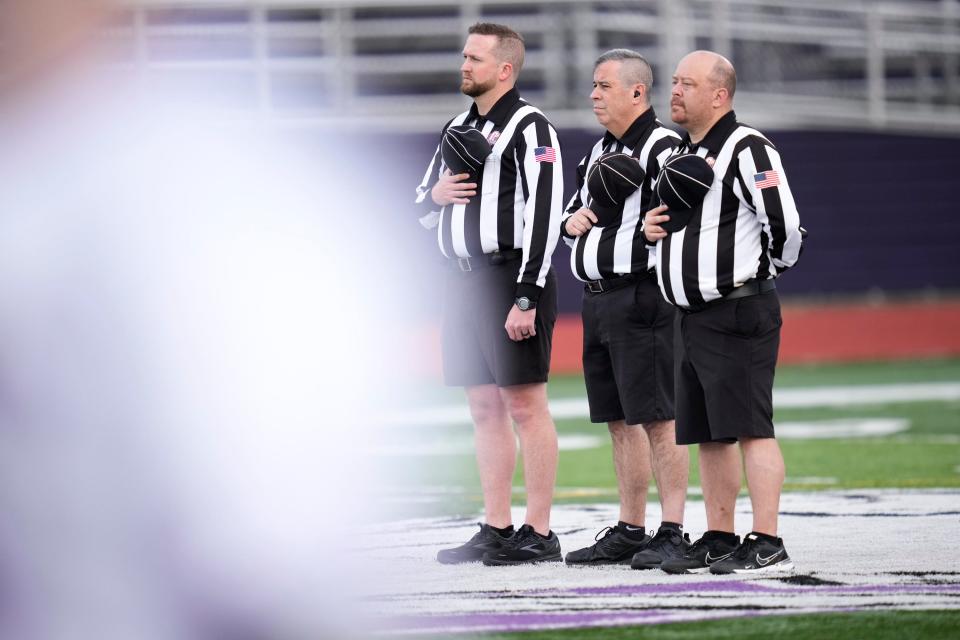
"Especially for a young person, they can officiate a sport at the middle school and the travel level and make way more than they ever could make going to work at the grocery store," Burwell said, adding that even if money is the initial motivation, passion for the work is a strong retainer.
"Once they get a hold of it and they like it and they determine, ‘Hey, I can get better at this and then I can move up,’ " he said, "that’s when you see people, they end up working a small college or some of the other higher-end leagues because they started off when they're young."
'They're out there learning'
Recruiting officials goes beyond high school students, with the OHSAA looking for passionate people already involved with high school athletics.
"And then we have to work on the sportsmanship and to make sure our environments aren't turning people away," Rugg said.
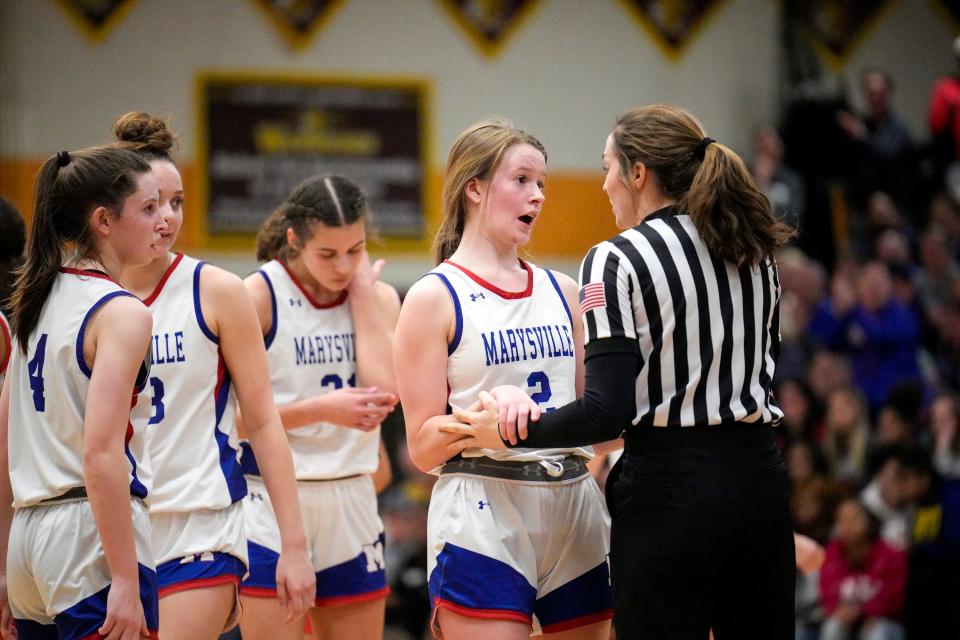
The sometimes-hostile environment of high school athletic events has affected the way an officiating job is perceived.
Some officials interviewed by The Dispatch said parents occasionally need a reminder to not let their emotions overshadow the fact that athletics are meant to benefit their children.
"If it was easy, everybody would do it and it can scare some people away," 25-year-old football referee Trevor Lotz said. "But I know the expectations and we hold everybody accountable. ... You're not going to make everyone happy, unfortunately, but with our work ethic we'll be able to do a good job at that end."
There is a feeling that if young people still in or just out of high school know the environment can be rough for officials, they might hesitate to take classes in the first place.
The OHSAA holds an Officials Appreciation Week once per sports season as part of its Respect the Game initiative. Athletic administrators are asked to have the public address announcer read an OHSAA-provided script before all events during those weeks.
"As adults, when you go watch your kids, obviously they're young kids, they're out there learning, the same as the young kid that's playing the game," Brammer said. "If we would just allow them to do their job and quit being so critical of them, I mean, what kid wants to go out someplace and get yelled at?"
This article originally appeared on The Columbus Dispatch: What is OHSAA doing to recruit new high school officials?
